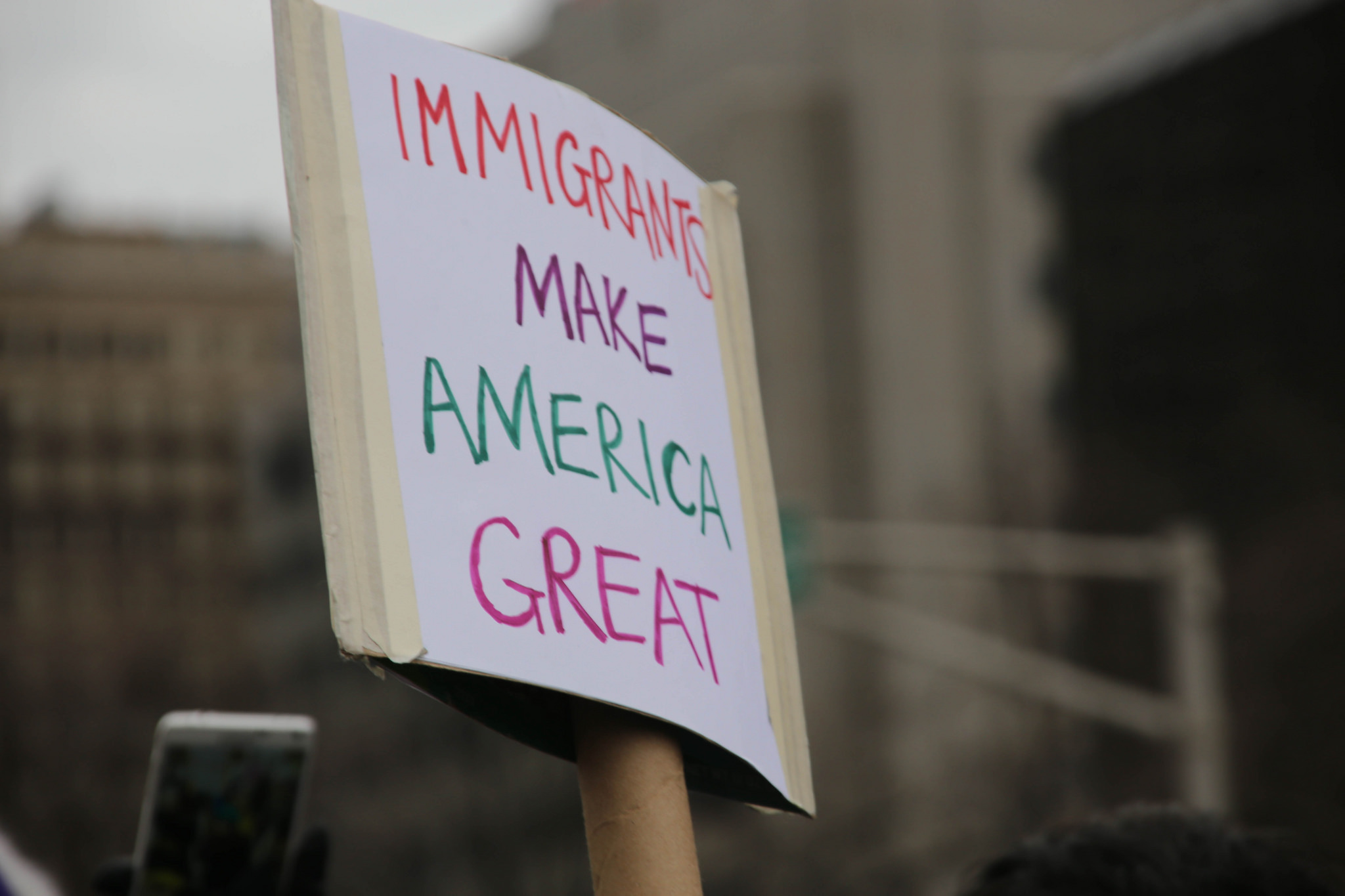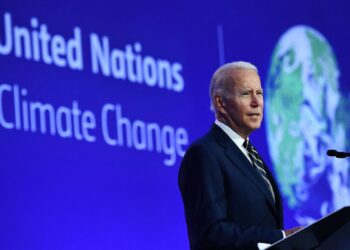President Donald J. Trump has repeatedly indicated his willingness to disparage immigrants to the United States — immigrants of color, in particular — by means of vulgar and divisive language.
Although Trump’s most recent denigrating comments about the native countries of black and brown immigrants have received much attention in the news and other public platforms, there is still a critical component of the contemporary conversation regarding U.S. immigration that has not received sufficient consideration: the particular struggle that immigrants of color experience in the United States.
Since migrating to this country, there have often been moments in my life when I have found myself painfully aware of the color of my skin. From the feelings of inadequacy that I have learned to assuage within myself when frequenting spaces where I am visibly an ethnic minority to the often-overbearing pressure that realizing the extent to which friends and family back in Haiti are relying on me to achieve their understanding of success in the United States, being an immigrant of color in this country does, too often, feel more like a burden than an opportunity.
As an immigrant, I have also had to come to terms with the fact that, at times, I no longer belonged to myself. Specifically, my identity in this country has often been limited to my parents’ justification for why they have allowed themselves to be overworked, and, as Claude Steele writes, the “identity contingencies,” which, at times, render me unable to understand myself as a black man.
These contingencies have often resulted in me developing a healthy skepticism towards my ability to perform well in school, sports teams and other areas in my life that felt definitive. Unfortunately, this internal struggle, which is not limited to my own immigrant experience, has seldom received much attention during U.S. immigration policy debates.
Donald Trump further exacerbates this phenomenon, as his repeated use of denigrating remarks to refer to immigrants highlights the distinct burden that black and brown immigrants, in particular, often incur while seeking to build a life in the United States: a kind of “double-consciousness” of both their immigration status and the fact that they are people of color.
Through his repeated verbal assaults towards immigrants, Donald Trump has indicated that he lacks an appreciation for (and knowledge of) what the process of immigration actually entails.
In the past, when speaking on this topic, Trump has suggested that immigration to the U.S. is a kind of zero-sum game, in which immigrants of color, in particular, are criminals who seek to enter the U.S. by nefarious means in order to steal a slice of the American pie from the hands of natural-born white American citizens.
His comments also demonstrate that he believes that immigrants of non-white majority countries ought to be regarded as second-class citizens, or, as Marc Lamont Hill writes, “Nobodies.” This type of predatory verbal abasement of immigrants of color, and Donald Trump’s ability to wield an apparent veil of political immunity when making disparaging comments in general, is a function of white supremacy, which appears to have permeated the Office of President of the United States.
What was even more dangerous than Trump’s reference to my native country as a “shithole,” was the extent to which the nations he referred to were framed as being politically disposable. This characterization threatens to worsen the already-underdeveloped trade relationship between the U.S and Sub-Saharan Africa, confirms Donald Trump’s peculiar tendency to berate immigrants from Hispanic countries (i.e. Mexico) and undermines the collective zeal that Haitians have maintained while sustaining an unfortunate succession of natural disasters in recent years. Thus, Donald Trump’s disparagement of immigrants from predominantly black and brown countries, hurts us as a country, as well.
Furthermore, immigration in the United States has too often been framed as a means by which immigrants of color try to escape the struggles that they experience in their home countries by fleeing to the United States.
This commonly accepted “American Dream” narrative has unfortunately been used to oversimplify the difficult transition during which immigrants – black and brown immigrants in particular – often experience stages of downward social mobility while migrating to the United States in search of a better life for themselves and their families.
Studies have shown that immigrants of color often experience series of “social stressors” (i.e. experiencing racial discrimination, being overworked and having to live in an unsafe neighborhood), which may result in them developing symptoms of mental and emotional distress.
Another factor that exacerbates these social stressors, is the commonly self-inflicted stress, which is often elicited by the realization of how seemingly insurmountable obstacles on the path to the American Dream appear to be – from a lack of social capital necessary to engage in a community to difficulties attaining a job, which one may have had the credentials to attain in their native country.
For instance, my American Dream has often changed as I entered different stages in my life in this country. What has remained constant, however, is the self-perception of inadequacy, which I have had to repeatedly learn to abate. After years of reflection, I have come to terms with the fact that this internal struggle stems from my understanding of myself as both an immigrant and a black man.
The danger in Donald Trump’s use of vulgar remarks to refer to non-white majority countries lies beyond the fact that he uttered those comments. Immigrants of color in this country have always been subjected to racially-motivated denigration through both actions and words. The danger lies in the absence of moral courage in the American society, wherein repeated ill-treatment of immigrants of color, especially by the highest office in the land, can exist without any meaningful retribution.
Disclaimer: The views and opinions expressed here are those of the author and do not necessarily reflect the editorial position of The Globe Post.




















